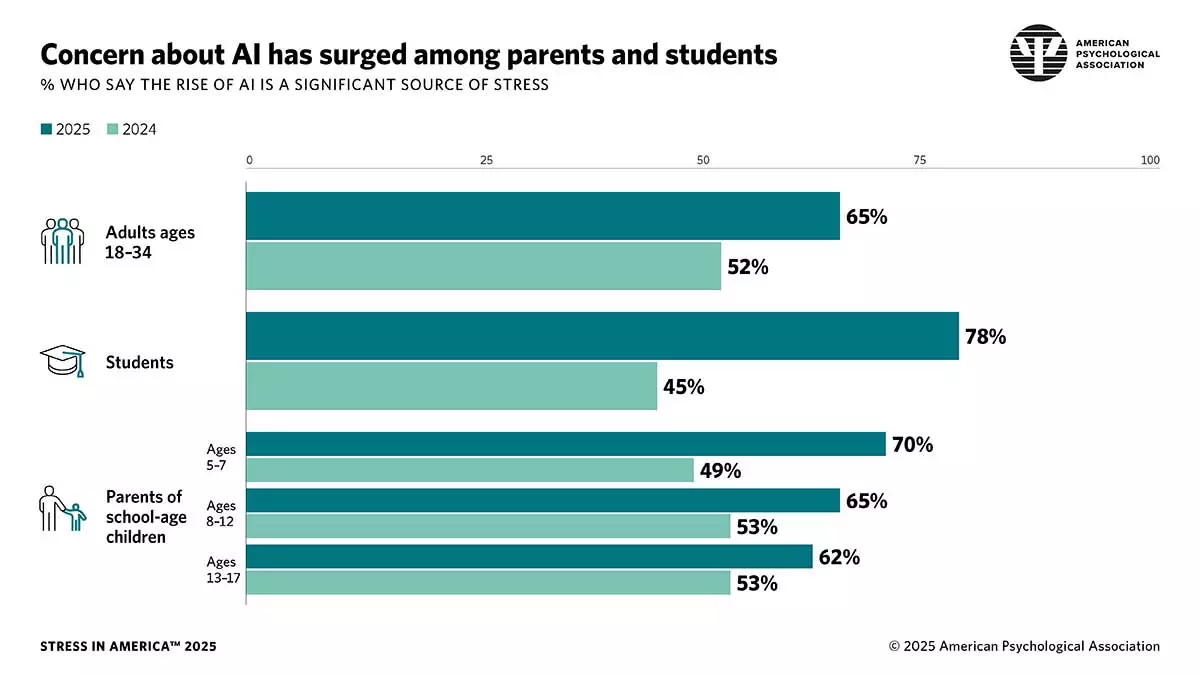A new poll commissioned by the American Psychological Association (APA) has shed light on a disturbing trend among residents in the US. An increased sense of division is leading to a cascade of other negative effects.
Called “Stress in America 2025,” the poll was carried out between August 4-24 of this year and included responses from 3,199 adults over the age of 18 who reside in the US. The participants were selected to be a nationally representative sample based on the March 2024 Current Population Survey by the US Census Bureau.
Among its many findings, the poll highlighted the effect an increased sense of division is having on the nation. Those who said they found societal division to be a significant source of stress also reported feeling isolated at a rate of 61%, versus 43% of those not citing it as a factor. Those stressed by the division also had higher negative markers in other areas of their lives than those not as affected: 60% versus 49% said they were more likely to lose patience with family members; 53% versus 37% said they were unable to plan for the future; and 55% versus 37% said they cancel plans due to the stress.
American Psychological Association
“This year’s findings show that people across the nation are not just feeling divided, they’re feeling disconnected,” said Arthur C. Evans Jr., CEO of APA. “Research tells us that a sense of isolation and social fragmentation can have real consequences for our ability to manage stress and stay healthy.”
The survey also showed that Americans aren’t feeling too great about their country overall, with 75% saying they are now more stressed than ever about the country’s future. They also chose a varied mix of terms when asked to select those that best represents their country today: freedom (41%), corruption (38%); opportunity (37%); division (36%); hope (35%); and fear (32%).
Additionally, the survey brought the effects of America’s loneliness trend to light. Sixty-five percent of those who reported the highest levels of loneliness also said they felt depressed or sad; 60% said they felt nervous or anxious; 54% reported fatigue; and 48% had headaches. That’s in comparison to 15%, 24%, 24%, and 25% respectively for those not reporting feelings of loneliness.

American Psychological Association
“Psychological research shows us that loneliness and isolation may increase the risk of premature mortality and are also linked with depression, poor sleep and cognitive decline,” said Evans. “We also know that social support is one of the strongest predictors of people’s well-being, reinforcing that connection is vital to our health. Reaching out, showing up and building community are not optional, they’re essential.”
There was a growing unease with AI and disinformation among survey participants, too. Sixty-nine percent said the spread of misleading information was a source of stress, which is up from 62% in last year’s survey, while 57% were stressed by the rise in AI, which exceeds last year’s number of 49%.

American Psychological Association
All of that being said, America’s optimism still shined through in the survey. Eighty-four percent of respondents said they felt they could still create a good life, and 73% said they believed they could help shape the country’s future for the better. The survey also probed where Americans find meaning: family (77%), friendships (62%), romantic relationships (47%); and pets (39%). In terms of future goals or aspirations, financial stability and security got 64%, followed by improving health and spending time with family and friends.
“People may be reevaluating what gives their lives meaning, but they haven’t given up on finding that purpose,” said Evans. “Even as many feel disillusioned, they’re focusing on what they can control – nurturing their relationships, building financial stability and improving their health. That mix of hope and concern captures where America is today: Anxious, yes, but still striving for fulfillment.”


